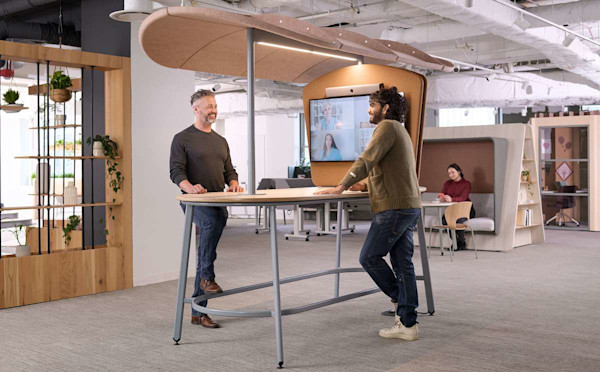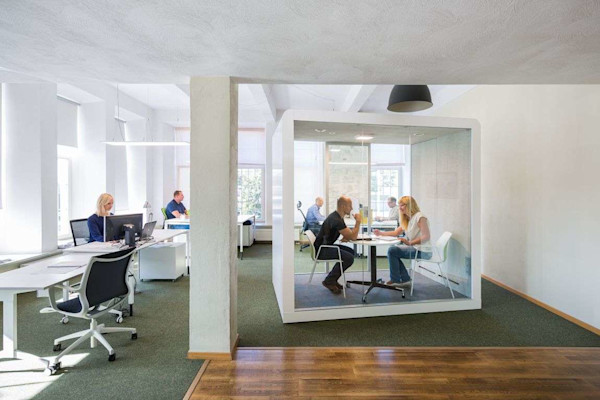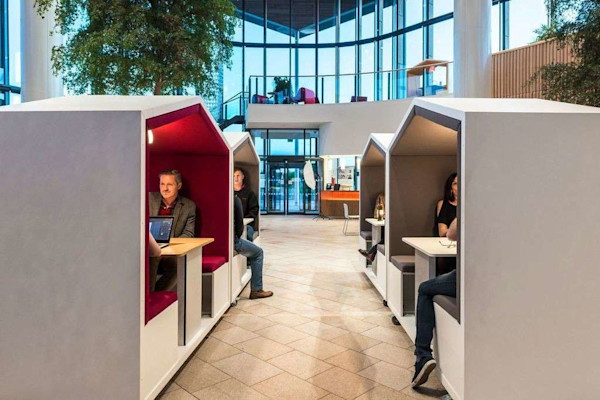The Disconnect of Remote Work

So your business survived the pandemic and The Great Resignation? There is a new threat sweeping the workforce. Disconnect. Loss of engagement. Quiet quitting. Call it what you will, but after two plus years of working from home, and now merging into some sort of hybrid plan in most industries, company culture has been damaged. Remote work was meant to be a temporary solution. And although many industries have pushed for a return. The rate of in-office workers is expected to hit a new high of 60%. That means that for the most part, employees will still be working from home 2 days out of the week. For many, that number is much higher or they are remotely working from home exclusively. It's time to take a look at the causes behind this disconnect of remote work and how businesses can strengthen company culture in their hybrid teams.
Remote Work, Isolation, or Loneliness?

According to a Cisco study, 98% of meetings will have at least one remote participant. Often, that number is much higher. Adding to a feeling of disconnect, many remote workers don't feel like they have a voice.
“If I wasn’t the first person to speak, I would get lost,” Linda Aiello, the only remote worker on her team said at a conference, hosted by MIT Technology Review.
And when there are many people remotely zooming in from home, the number of people left feeling that they aren't heard only increases. This may lead to feelings of isolation. Isolation means workers don't have the access to the things they need to complete their work. Like getting to ask their question in a meeting. Or being away from a special piece of equipment needed, or not having access to certain company information.
But are Remote Workers Lonely?
While isolation is physical, even if just geographically, loneliness is emotional. This feeling often comes from a loss of connection to team members and supervisors. The amount of time we are spending in meetings is only increasing. Often the "small talk" is left off the agenda. How are your kids? How did your mom's surgery go? Was your offer accepted on that house? And to remote workers who don't have the causal time in the breakroom or the water cooler chats, the loss of these small talks is often a big deal.
Building meaningful relationships in the workplace takes both intentionality and consistency.
Workers are left feeling that the company doesn't really care about them and the disconnection grows. Without a strong connection, employees find it easier to leave. In fact, employee disconnection is one of the main causes of voluntary turnover. According to, Cigna lonely employees cost companies up to $406 billion a year in the United States alone. And that same study shows that lonely employees are a higher turnover risk, are less productive, miss more work, and produce work of lower quality. Loneliness is a big problem.
The Importance of Relationships

Remote Work and Connection

Team members will have stronger motivation and drive if they know what they are really working for and how their work relates to the bigger goal
This can look like creating rituals around connection. HBR suggests things like Gratitude Mondays, where everyone shares what they are grateful for to begin the workday. Or Storytelling Friday, where a worker gets to tell a personal story and colleagues can ask follow-up questions. But instances like these make work more than just a building (or the company who sends your checks for fully remote workers!), but a community. And in a workplace where casual conversations aren't happening as often, these efforts can go a long way.
The Real Problem isn't Hybrid or Remote Work

“Employees at all levels, and across demographics, are suffering from a connectedness crisis. Which suggests this problem isn’t just related to hybrid and remote work, but to organizations’ lack of intentionality in driving connectedness historically.”
If your company had a strong company culture before the pandemic, chances are that culture still exists in a remote and hybrid environment. If this culture isn't present, you can begin with new hires to establish it. The first chance you have to build connectedness is during onboarding. This is a chance to connect an employee to the company's mission and values. Team members will have stronger motivation and drive if they know what they are really working for and how their work relates to the bigger goal. Assigning a mentor for new employees, especially if they are remote gives them a constant touch point into company culture.
Collaboration and Connection




